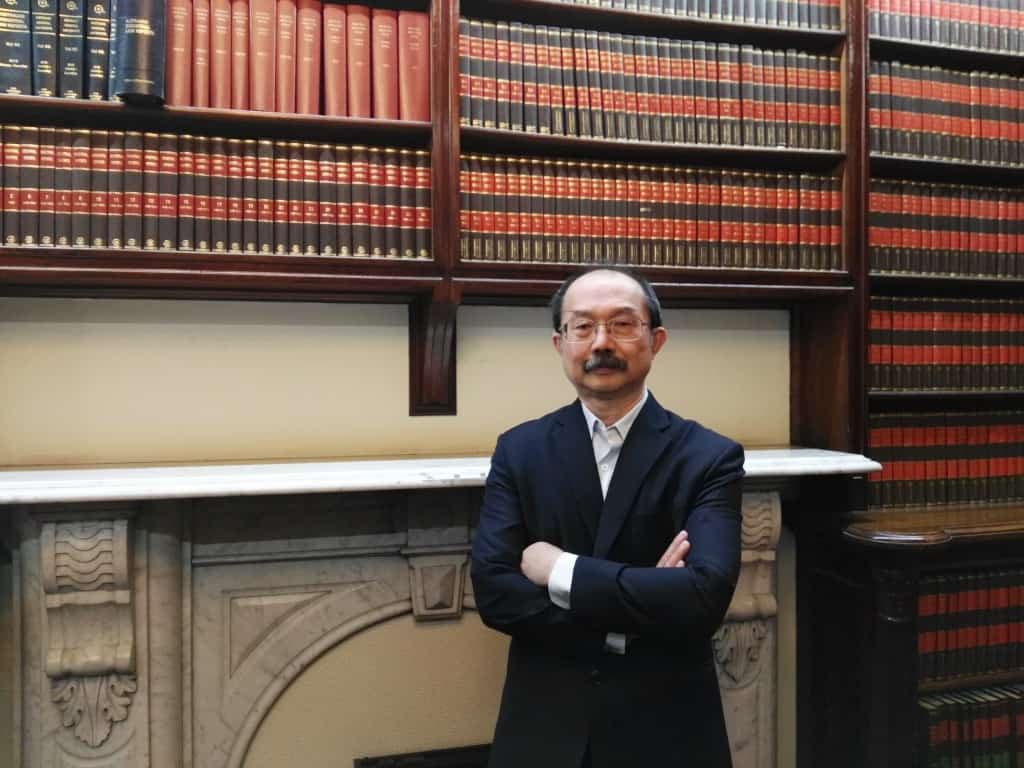
Absorbed person visa (APV) is, by operation of law, taken to have been granted to certain people on 01 September 1994.
Usually, non-Australian citizens entering the country is considered to be “immigrants” but certain persons who entered Australia did not remain immigrants because at some point in time, they were “absorbed” into the Australian community and ceased to be immigrants. These people who arrived before 02 February 1984 had become absorbed should not become unlawful if they remain continuously in the country. They remained as permanent residents even though they were not holders of any entry permits.
From 01 September 1994, section 34 of the Migration Act applies and grants them a permanent visa or Absorbed person visa (APV). An Absorbed person visa (APV) is an Act-based visa that does not have a class or subclass but has been allocated an administrative code ZY-934. The visa grant will always be recorded as 01 September 1994. This visa will cease as soon as the holder leave Australia or granted a substantive visa or the Absorbed person visa (APV) is cancelled (e.g., under s. 501 or 501A or s. 501B).
An Absorbed person visa (APV) allows the holder to remain permanently in Australia but if they were to depart, the Absorbed person visa (APV) will cease, hence will not be able to return to Australia.
Absorbed person visa (APV) is a stay only visa, and does not allow the holder any travel outside of Australia as the visa does not have any travel (re-entry) component.
In short, an Absorbed person visa (APV) is (i) granted by operation of law (section 34), (ii) there is no application required as they are taken to have been granted an Absorbed person visa (APV) on 01 September 1994 if they meet the requirements of s. 34, and (iii) the Absorbed person visa (APV) will automatically cease when the holder leave Australia or if they are subsequently granted another substantive visa (s. 82).
Absorbed person visa (APV) & NZ citizens
If you are an NZ citizen residing in Australia on 01 September 1994 and satisfied the criteria for the grant of an Absorbed person visa (APV), you may have been granted an Absorbed person visa (APV) on 01 September 1994.
If you have been granted an Absorbed person visa (APV), you will not be holding a Special Category Visa (click here to learn more about SCV) on 01 September 1994 (r. 17 of the Migration Reform (Transitional Provisions) Regulations 1994).
However, if on 01 September 1994 you have been granted an SCV and not a holder of an Absorbed person visa (APV); and you were residing in Australia before or on 01 September 1994 as an exempt non-citizen or holding a permanent entry permit), you may be eligible to apply for a Resident Return Visa (click here to learn more about RRV) as a “former permanent resident”.
Absorbed person visa (APV) & British arrivals
British citizens who arrived in Australia before the commencement of the Migration Act 1958 on 01 June 1959 may be taken to have been granted an Absorbed person visa (APV) on 01 September 1994.
Leaving Australia while holding an Absorbed person visa (APV)
Section 82(8) applies to an Absorbed person visa (APV) holder as they are allowed to remain in but not re-enter Australia. Their Absorbed person visa (APV) ceases to be in effect if they leave Australia. Depending on the person’s circumstances, they may be eligible to apply for an RRV (or a Former Resident visa – click here to learn more) on the grounds that they are a former permanent resident.
Can Absorbed person visa (APV) be cancelled?
In Falzon v MIBP [2018] HCA 2, Falzon, a national of Malta, lived in Australia for 61 years after arriving at age of 3. He held an Absorbed person visa and a BF Transitional (Permanent) visa. In 2008 he was convicted of trafficking a large commercial quantity of cannabis and was sentenced to 11 years’ imprisonment. In addition, Falzon had previous convictions for drug-related and other offences. While servicing his jail term, his Absorbed person visa (APV) was cancelled under s. 501(3A). As a result, his BF visa was also cancelled.
Section 501(3A) allows the Minister to cancel a visa if the holder is serving an imprisonment term, and does not pass the character test because he has substantial criminal record (s 501(6) – does not pass the character test if, (s 501(7) if sentenced to death or life or 12+ months of imprisonment) or committed sexually based offences involving a child (s. 501(6)(e)).
After Falzon’s Absorbed person visa (APV) was cancelled, he was invited to make representation about revoking the cancellation (r. 2.52). Section 501CA(4) allows the Minister to revoke the cancellation if satisfied that he passes the character test or there is another reason why the visa should be revoked. However, a decision not to exercise the power conferred by s. 501CA(4) cannot be reviewed by the AAT.
The Assistant Minister decided not to revoke the cancellation decision as Falzon does not pass the character test. The Assistant Minister then consider if there is another reason why Falzon’s cancellation should be revoked. It was accepted that Falzon has strong family ties to Australia and his removal would cause substantial emotional, psychological and practical hardship to his family (2 sisters, 4 brothers, 4 adult children and 10 grandchildren in Australia). It was also accepted that Falzon has not been to his country of birth for many years and he may suffer social isolation and emotional hardship. Nevertheless, the Assistant Minister concluded that Falzon represents an unacceptable risk of harm to the Australian community and protecting the community outweighs his interests (family and others). The cancellation of Falzon’s Absorbed person visa (APV) was not revoked.
At the HCA, Falzon argued that s. 501(3A) further punishes him for the offences he has committed.
Section 501, of which s. 501(3A) forms part, provides for the refusal or cancellation of visas on character grounds.
Section 501(1) allows the Minister to refuse to grant a visa if the applicant does not pass the character test.
Section 501(2) allows the Minister to cancel a visa if the Minister suspects that the holder does not pass the character test and the holder does not satisfy the Minister that he passes the character test.
A person whose visa is cancelled will become an unlawful non-citizen and will be liable to immigration detention (s. 189) for certain duration (s. 196) and until he is deported or granted a visa. That person’s detention will continue (s. 196(4)) unless a court determines that the detention is unlawful or that person is not an unlawful non-citizen. Section 196(5) provides that s. 196(4) will applies whether or not there is a real likelihood of removal under s. 189 or s. 199 in the reasonably foreseeable future and whether or not the decision relation to the person’s visa is unlawful.
You should be aware that ss. 189 and 196 authorise and require the detention of a non-citizen for the purpose of his removal from Australia (Al-Kateb v Godwin (2004) 219 CLR 562; Re Woolley; Ex parte Applicant M276/2003 (2004) 225 CLR 1; Chu Kheng Lim v MILGEA (1992) 176 CLR 1).
The HCA does not accept Falzon’s argument that because he is absorbed into the Australian community, he cannot be deported as an alien (Pochi v Macphee (1982) 151 CLR 101 at 111, 112, 116). In Pochi, Gibbs CJ said at [111] that a person’s nationality does not change by the length of residence or an intention permanently to remain in a country of which he is not a national.
In Chu Kheng Lim v MILGEA (1992) 176 CLR 1, the joint judgement (at 29-30) said that whilst an alien enjoy the protection of Australian law, his status, rights and immunities under the law differ from those of an Australian citizen.
The HCA said, in term of whether Falzon’s immigration detention is punishment, unless a decision is made to revoke his visa cancellation, his cancellation is valid. The HCA further accepted that s. 501(3A) constitutes a legislative judgement that a class of persons identified by their offending and imprisonment are not to remain in Australia as the Migration Act regulate the coming into and presence in Australia of non-citizens (s. 4(1)).
Further, the deportation of aliens does not constitute punishment, same as the cancellation of a visa is a step necessary to achieve the removal of the holder from Australia (Falzon at [47]). The power to cancel a visa by reference to Falzon’s character due to his prior offending is not inherently judicial in character. In the EM, s. 501(3A) was calculated to ensure that “noncitizens who pose a risk to the community will remain in either criminal or immigration detention until they are removed or their immigration status is otherwise resolved” (Parliament Debates (Hansard) 24 September 2014 at 10328).
The HCA held that s. 501(3A) did not authorise or require Falzon’s detention (s. 189 provides for detention of unlawful non-citizens; s. 196 deals with the duration of immigration detention). Section 501(3A) only requires his visa be cancelled on account of his criminal history and his imprisonment. Once his Absorbed person visa (APV) is cancelled, his legal status changed to an unlawful non-citizen which caused him to be liable for removal from Australia and to detention to facilitate his removal.
Australian migration law is complex and difficult to understand, contact our immigration lawyer for a consultation (fee applies) to discuss your Absorbed person visa (APV) or click here to search for a visa suitable to your circumstances.

 041 222 4020 or WeChat: AUDvisa
041 222 4020 or WeChat: AUDvisa
This article is not intended to be or taken as migration legal advice. The author of this article disclaims any liability for any action or omission on the information provided or not provided in this article. You should always consult an immigration lawyer or a registered migration agent to form an informed opinion on your immigration matter.



